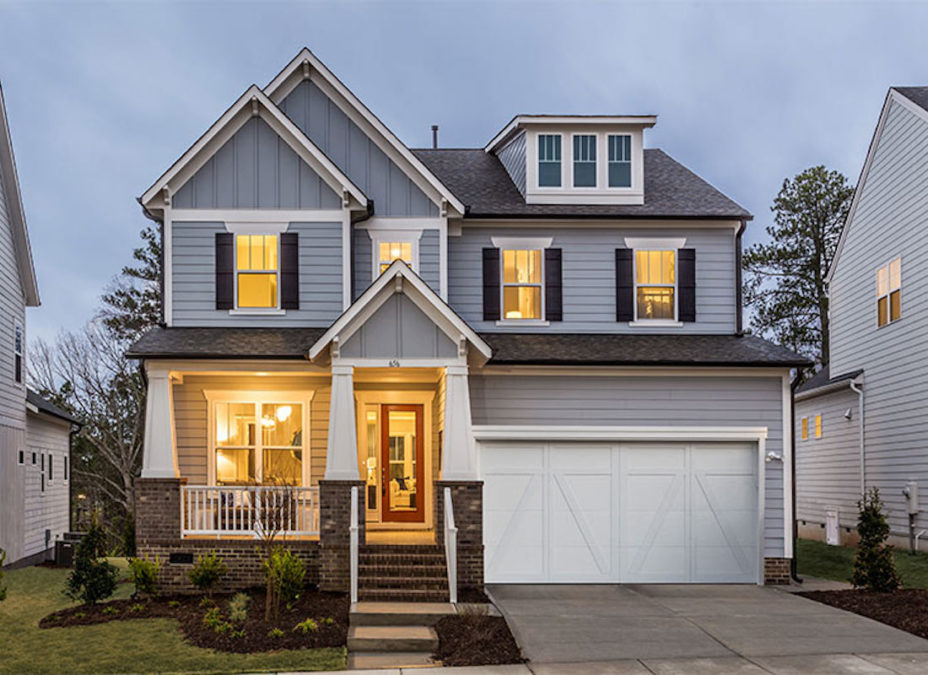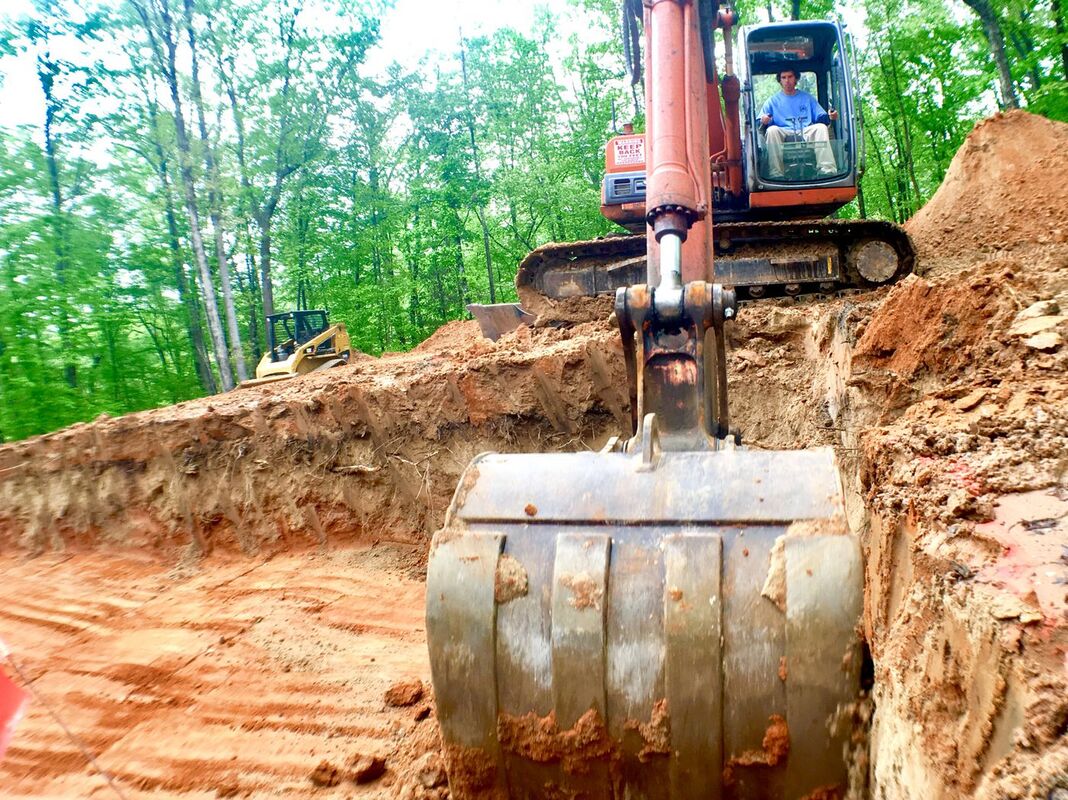What’s the Difference Between An Estimate, Quote and Bid? And Which Should You Get?— BYHYU 2087/1/2020 When deciding on which contractors to use for your project, you’ll need to compare prices, which means asking each potential contractor how much they will charge. There are several ways a contractor or supplier can outline cost: an estimate, a quote, and a bid. Although the terms are sometimes used interchangeably, there are important distinctions that we should understand. That’s what we’ll talk about in this mini lesson— the difference between an estimate, a quote and a bid. Throughout the lesson, I’ll be using the general term "contractor." When I say “contractor”, I’m referring to both a general contractor or builder, and a subcontractor. I’m calling them all contractors. If you’re using a general contractor to build your house, you’ll probably want to get price comparisons from at least 3 GC’s or builders who you’re considering for the job. These will probably come in the form of bids. If you’ll be an owner-builder, you’ll be dealing with several subcontractors directly, so you’ll be getting a lot of price comparisons over the course of your project. And it’s important to understand what pricing document you should request. Let’s try to get a handle on the differences between an estimate, a quote and a bid. As always, I’ve done my best to simplify this information and I’ll be presenting it as accurately as I know how, but there is some variation from site to site as to how the different terms are defined. Truthfully, it’s best to contact a lawyer if you have any questions about which document is best for you. But I’m attempting to give you a general overview. Let’s start with an estimate. Estimate A project estimate is, as the name implies, a general, rough estimation of what the project will cost. Contractors use estimates to calculate their approximate costs to complete a project. They look at the project specifications and determine the raw materials and labor needed. Pop Quiz: Do you remember what specifications are? We talked about specifications in several episodes, including Episode 124 called Electrical, Plumbing and Mechanical/HVAC Specifications. Can you remember the term specifications? Specifications, or specs, describe what materials will be used to build a house and how those materials should be installed. While house plans are a visual, diagrammatic representation of your house, specs are like the written description. Okay, so to write up an estimate, contractors look at specs to figure out what materials and labor are required for a job. The contractor then goes to their suppliers to get the prices for the raw materials, and they use that information to calculate the estimate. Estimates are often the first calculations done for a project. You could skip the estimate all together and just ask for a more accurate bid, but because estimates can usually be done in a shorter amount of time, estimates are a good starting point. They are rough estimations, but they can give you a pretty good idea if a project or feature is within your budget, close to it, or way beyond your means. For example, if you contemplating adding a swimming pool, getting about 3 estimates from different pool contractors will let you know if, given your budget, a pool is a realistic feature to add to your home. If so, you can then get formal bids. In other words, the estimate simply allows you to get a sense of how much something will cost you and whether to continue pursuing that particular part of the project. Simple estimates are usually free, but some contractors charge for the time it takes to do a good and thorough estimate. Those contractors who charge for estimates will often give you a much more detailed document where everything is spelled out. Estimates, in general, are usually the least accurate of the price documents we’re talking about today. But the advantage of an estimate is that they can be prepared fairly quickly to help the contractor and homeowner determine the cost of the project and help with budgeting. Estimates are fairly flexible and that will allow you adjust the plans to meet your budget and needs. An estimate is not legally binding and is understood by both parties to be subject to change, once further details of the project are provided. If your lot has concealed areas of rocky soil, for example, that you and your contractor were unaware of, the original estimate for your foundation most likely did not cover the cost of blasting or jack hammering that rocky soil. In that case, the estimate to put in your foundation will increase because of that unforeseen rocky soil. And that price increase is no fault of yours or of the contractors. Estimates not only detail the costs and the services of contractor, they can also show timelines and completion dates. Sometimes you’ll have to request timelines specifically. An estimate manages expectations for both the homeowner and the contractor. You don’t have to get an estimate for every single part of your project, but an estimate is a great starting point for features, projects, and contractors that you’re not sure you want to pursue. In general, rough estimates are where you should begin to vet and narrow down your contractor list and decide whether you want to invest in a specific feature. Once you narrow down your estimates, you can ask for more detailed, accurate quotes or bids. So let’s talk about a Quote Quote A project quote is similar to a project estimate except a quote is more detailed and precise. A quote is often acquired from suppliers for materials, or from contractors for smaller jobs. For larger, complex jobs done by contractors, you probably want to ask for a bid instead of a quote. We’ll talk about bids next. The price provided in a quote is the actual price the homeowner will pay, once the homeowner agrees to working with the contractor or supplier. Within quotes, the project is clearly and fully defined, as far as what materials will be used and what work will be done. The quote could also include service exclusion and timelines. Once the client accepts the quote, nothing should be changed. I most often hear about homeowners getting quotes for materials that they would buy from a supplier or showroom, directly, independent of the contractor. Think of fireplaces or flooring. A quote from the supplier or showroom may also include the cost of installation. Contractors, on the other hand, have to get quotes from material suppliers all the time so they accurately write up estimates and bids. A plumber, for example, will get a firm quote for materials from a plumbing supply warehouse before he gives the owner-builder or general contractor an estimate, quote or bid for his services. The specific details for materials and installation should be outlined before a quote is accepted. Unlike an estimate, a quote provides a fixed price for a project and is subject to a specific time frame. That’s why most quotes typically say “Valid for 30, 60 or 90 days”. Quotes expire because the materials quoted are commodities, and commodities’ prices fluctuate based on supply and demand. Once the client accepts the quote, the supplier or contractor has to honor the quoted price for the number of days shown on the quote, whether that’s 30, 60 or 90 days. For this reason, a contractor has to compile a quote with a thorough understanding of what the client wants. So the quote should outline the materials, services, specific exclusions, timelines and the scope of work. The scope of work is a detailed description of what work is expected from contractors . A quote, in and of itself, is not a legally binding contract. Not until the following steps occur does a quote potentially turn into a legal binding document. 1. If the supplier submits the quote to the client 2. If the client accepts the quote and issues an order 3. If the supplier accepts the order After those 3 things happen, a quote can become legally binding in some, but not all, states. For instance, here’s how quote could become legally binding: A plumber can email a written, detailed quote to a potential client that says he will do the plumbing for a new construction home for a total $15,000. That quote should also include the scope of work. The potential client can email back saying they accept the quote and want to proceed with the order. The plumber emails the client again to thank them and confirm that they agree to do the work for the quoted amount, and will start the job by a certain date. At that point the quote becomes a legally enforceable contract in some states. You might also want to make sure that the quote/contract includes the terms of payment, meaning at which points during the job the plumber will be paid. If either the client or the plumber is not comfortable with an electronic version of a contract, either one of them can request a hard copy of a contract. And some states actually require that a contract be a written document. Consult a lawyer in you particular state to find out if and when a quote becomes legally binding. Let’s summarize what we’ve learned so far... An estimate is a rough estimation of price. It’s a good starting point to get a general idea if something is within your budget. An estimate it is not legally binding. A quote is a more accurate pricing document that shows the actual price you will pay. Quotes are more often used for pricing materials or smaller jobs. A quote can expire after 30, 60 or 90 days. And sometimes, in some states, a quote, once both parties agree to work together, can become a legal contract. For the more complex portions of your project, like HVAC or electrical, that have several steps or phases done by a contractor, you might be better off requesting a bid instead of a quote. Bid A bid is firm offer to the client. The word “bid” in construction refers to a document that offers to perform a specific job at a specific price within a certain amount of time. Bids are precise documents with a line by line list of work expectations and a cost per individual line item. There’s no grey area to bids. These numbers are as concrete as you can get. A project bid is a document that a contractor prepares in hopes of being awarded a project. If you’re working with a builder, the subcontractors will usually submit bids to the builder or general contractor. If you’re an owner-builder, the bids will be given to you. Bids are most helpful when they outline the specific materials and methods being bid upon. That way when comparing bids, you are able to compare apples to apples. A bid should have more detail than estimates and quotes. A bid may turn into a contract if the document is signed and/or agreed upon by both parties. To come up with an accurate bid, a contractor has to take into account every possible expense for the duration of the project, from start to finish. That includes not only the costs for materials and labor, but also any fees, taxes and incidental costs that might arise. The contractor also has to try to predict potential unforeseen costs that might come up due to delays or damaged materials. Because of all the effort and time required to deliver an accurate bid, you should never request a bid from a contractor that you are not seriously considering for a job. In some areas, in-demand contractors will charge you to prepare a bid. And some in-demand contractors refuse to bid on jobs all together, saying if you want to work with them, you’ll pay for their services without them having to compete with other contractors. A bid should be scrutinized with side by side comparisons with other bids. When comparing bids you should compare all labor and material costs to make sure contractors have outlined similar materials and methods. It won’t make much sense to compare two plumbing bids if one plumber has outlined copper pipes and another has outlined less expensive PEX plumbing. Because contractors know they will be competing for the job, there might be some room to negotiate pricing. However, if you’re in an area, or building during a time when subcontractors are in high demand, you may not be able to get subcontractors to lower their prices. But it never hurts to respectfully ask. Let me briefly talk about contracts. Remember, a quote and a bid can become a contract in some regions if they are signed and/or agreed upon by both the client and the contractor. Contract A contract is a document that should be a point of reference when there are any questions about the terms of an agreement. It should clearly denote the work to be done, the cost of that work, and the payment schedule. That way, there’s absolutely no question as to what work needs to be done, and what will be paid for it and when. In a contract, any changes to that the scope of work should be documented with a change order. An agreed upon change of price should also be shown in the change order. A contract often contains very similar information to a quote or bid. The information contained within a contract includes the project’s scope of work, various prices, expected timeframes, and various terms and conditions related to payments and any other information deemed relevant. The key difference between a contract and the other documents mentioned is that a contract is always legally binding. It’s a legal agreement between the contractor and client. Contracts remove the potential for either party to back out of their contractual agreements. Finally, a quick word about proposals. Proposal Proposals aren’t often used in construction. They are like written presentations that a contractor would rarely use to try to show why he is the best person for the job. Proposals include labor and materials costs and timelines, but they also include information about why the contractor would use certain techniques, or one material over another. A proposal might also highlight the contractor’s specialty skills. Proposals are more common in corporate industries such as advertising and retail, and are hardly ever used in residential construction. So, in summary, estimates are a rough estimation and give clients a general idea of what pricing to expect. Asking for an estimate is a good way to rule out contractors or projects that are too expensive, or contractors who offer suspiciously low prices. Quotes are more accurate than estimates but are most often used when getting prices for materials from suppliers and from contractors for small jobs. Quotes are more concrete and specify a fixed price for a specific time frame. For larger jobs, including whole house construction, after you’ve selected 3-4 competitors, request and compare bids and make your final decision. You can skip estimates and quotes all together and ask for 3-4 bids from contractors you are seriously interested in working on projects you definitely know you can afford. If you’re not sure you can afford a certain feature, be kind and get a rough estimate before you request a quote or bid. Bids offer more detailed information than estimates and quotes. A bid is a firm offer to a client. To learn more about the bidding process take a listen to episode of 119, called Understanding the Bidding Process. An estimate is almost never legally binding. A quote and a bid are sometimes, in some states, legally binding, particularly if both you and the contractor have agreed to the terms of the quote or bid. And a contract is almost always legally binding. But I will reiterate, get the counsel of a lawyer if you have any questions about which document is best for your particular situation. Please remember that the purpose of this podcast is simply to educate and inform. It is not a substitute for professional advice. The information that you hear is based the only on the opinions, research and experiences of my guests and myself. That information might be incomplete and it’s subject to change, so it may not apply to your project. In addition, building codes and requirements vary from region to region, so always consult a professional about specific recommendations for your home. That's all I have for you. I hope you learned as much as I did. Thanks for stopping by.
0 Comments
Your comment will be posted after it is approved.
Leave a Reply. |




 RSS Feed
RSS Feed